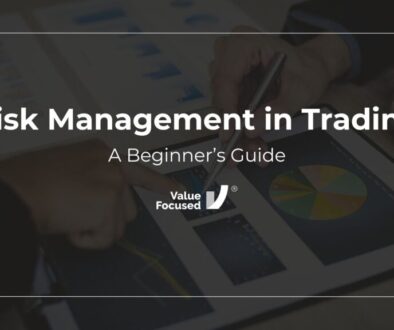Beginners Guide for Profitable Stock Market Trading in 2024
Starting the journey of stock market trading can be both thrilling and intimidating for beginners. The intricacies of financial markets, the multitude of investment options, and the dynamic nature of stock market trading can make the process seem complex. However, armed with the right knowledge and resources, anyone can navigate the stock market successfully.
In this guide, we explore the essential steps to start stock market trading. We place a particular emphasis on the value of enrolling in share market classes.
Mastering Profitable Stock Market Trading: Strategies for Success
-
Cultivate Financial Literacy
Before diving into trading, it’s crucial to cultivate a basic understanding of finance concepts. Familiarize yourself with stocks, bonds, mutual funds, and ETFs. Online resources, financial news platforms, and introductory books can be valuable tools for building financial literacy.
A basic understanding of these concepts will be essential to making informed decisions when trading. Knowing the basics will help you identify potential opportunities, understand the risks associated with different types of investments, and make informed decisions about when to buy or sell.
-
Set Clear Financial Goals and Risk Tolerance

Define your financial goals and assess your risk tolerance. Are you seeking long-term wealth accumulation or short-term gains? Understanding your risk tolerance helps shape your stock market trading strategy and ensures it aligns with your financial objectives.
Once you have defined your financial goals, create a plan to achieve them. This includes setting a budget, researching investments, and creating a strategy. Finally, track your progress and adjust the plan as needed.
-
Create a Realistic Budget
Establish a budget dedicated to your stock market trading activities. Determine the amount of money you can comfortably invest without jeopardizing your financial stability. This budget serves as the foundation for your trading endeavors.
A budget will help you stay organized and have a clear understanding of how much money you can invest in your trading activities. It will also help you keep track of the money you are spending, so you can make adjustments if necessary.
Additionally, it will help you remain true to your plan and prevent you from making impulsive decisions that may be detrimental to your financial health.
-
Choose a Reputable Brokerage firm

Selecting a trustworthy brokerage firm is paramount. Look for a platform that suits your needs, offering a user-friendly interface, research tools, and competitive fees. Brokerage firm will be your gateway to the stock market, so choose wisely.
A trustworthy brokerage firm should provide reliable customer service, have good reviews, and be regulated by a government agency. A platform should also offer a range of trading options, such as stocks, ETFs, mutual funds, and bonds, as well as access to educational materials to help you make informed decisions. Finally, the brokerage should have competitive fees and a low minimum investment amount.
-
Open a Trading Account
Once you’ve chosen a broker, open a trading account. This typically involves providing personal information and funding the account. Different brokers offer various account types, including individual, joint, and retirement accounts.
The account type you choose depends on your financial goals and risk appetite. Some brokers also offer different types of accounts with different fees and features, so it’s important to compare different brokers before opening an account.

Enrolling in share market classes can significantly accelerate your learning curve. Professional courses offer structured education on topics such as technical analysis, fundamental analysis, risk management, and trading strategies. Look for reputable institutions or online platforms that provide comprehensive courses tailored to beginners.
Share market classes can help you gain a deeper understanding of the market and how it works. Professional courses offer a detailed overview of the key concepts, strategies, and techniques you need to know to be successful in the market.
Additionally, they can provide you with the opportunity to network with other professionals in the field and gain insights from their knowledge and experience.
-
Practice with a Demo Account
Many brokerages offer demo or paper trading accounts, allowing you to practice trading with virtual money. This hands-on experience helps you become familiar with the trading platform and test your strategies without risking real capital.
This can be beneficial for beginners who may not be familiar with stock market trading or for experienced traders who want to test new strategies before investing real capital. Additionally, these accounts can help traders gain a better understanding of how different indicators work, such as moving averages and Bollinger Bands.
-
Develop a Trading Plan

Crafting a well-thought-out trading plan is essential. Define your goals, risk management strategy, and criteria for entering and exiting trades. A solid plan acts as a roadmap, guiding your decisions and minimizing impulsive actions.
A well-crafted plan helps to ensure that all your trades are aligned with your goals and risk appetite. The plan should also provide you with a framework for evaluating potential trades and making a decision about whether or not to enter into them. Furthermore, the plan should provide you with guidelines for when to enter and exit trades, as well as how much capital to risk in each trade.
-
Stay informed.
Keep yourself informed about market news, economic indicators, and company performance. Continuous learning is crucial for adapting to the stock market’s ever-changing dynamics.
By staying informed, you can identify potential opportunities and avoid getting blindsided by trends in the market. Additionally, it helps you make informed decisions about when to buy or sell stocks.
-
Start small and diversify.

When you’re ready to transition to live trading, start with a small investment. Diversify your portfolio to spread risk across different assets and sectors. Avoid putting all your money into a single stock.
This helps you to minimize the risk of losses, as diversifying your portfolio helps to spread your investment across different asset classes and sectors. It also helps to protect yourself from sudden market fluctuations, as different sectors can be affected by different factors.
-
Monitor and Evaluate
Monitor your portfolio regularly and evaluate your trades’ performance. Learn from both successes and failures, adjusting your strategy as needed. Keep a journal to track your trades and identify patterns.
This will enable you to better identify which strategies are working and which need to be adjusted. It will also allow you to review your trades in detail, so you can identify any potential mistakes or areas for improvement. Additionally, keeping a journal will help you to see your successes more clearly, so you can identify any potential areas of growth.
-
Seek Professional Guidance

Consider seeking professional advice, especially if you encounter challenges. Financial advisors can provide personalized guidance based on your unique financial situation and goals.
Professional advisors can provide valuable insight into which investments are best for you, how much risk you should take, and how to maximize your wealth. They can also help you create a financial plan that takes into account your long-term goals and financial situation.
Conclusion:
Embarking on the journey of stock market trading requires education, discipline, and practical experience. Enrolling in share market classes can be a game-changer, offering structured learning and insights from experienced professionals. Remember, successful trading is a continuous learning process. With dedication, anyone can navigate the stock market complexities and work towards their financial goals.




